
Niels G. Mede
@nielsmede.bsky.social
🔎 Assistant Professor of Science Communication
📍 Wageningen University & Research @w-u-r.bsky.social
🏠 www.nielsmede.com
📍 Wageningen University & Research @w-u-r.bsky.social
🏠 www.nielsmede.com
Pinned
Niels G. Mede
@nielsmede.bsky.social
· Jul 2
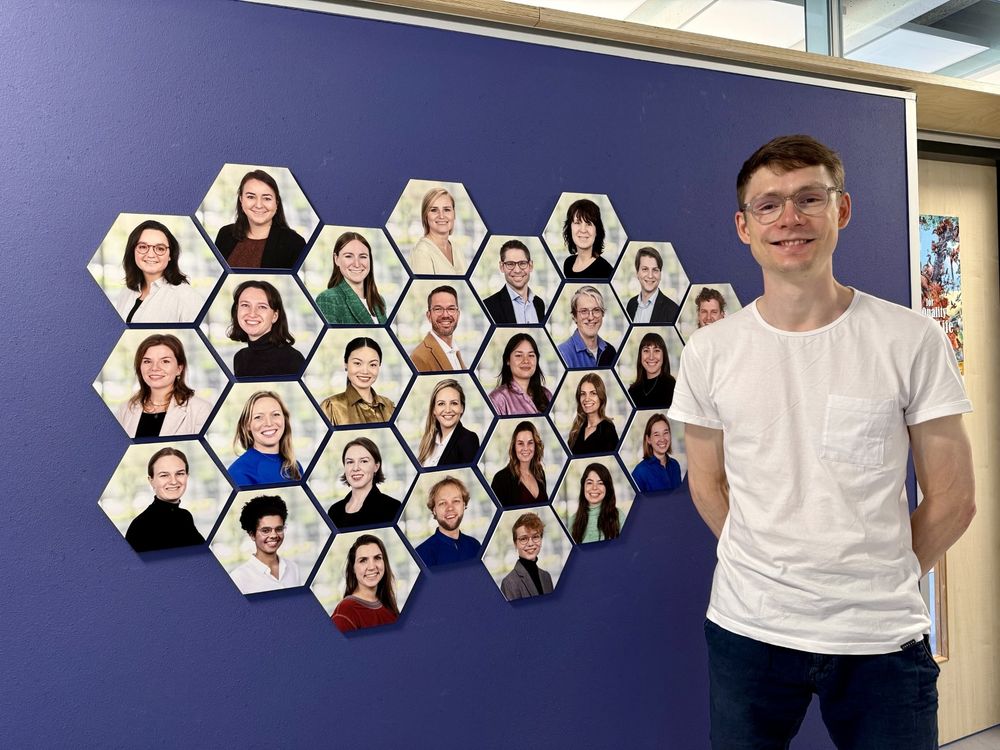

Ade Zürich, hallo #Wageningen! This week I started my new position as Assistant Professor at @w-u-r.bsky.social ✨
Thanks a lot for the warm welcome – I'm very excited about what’s ahead! At the same time, I'm very grateful for the years I spent at @ikmz.bsky.social. Merci vielmal und uf widerluege 🫶
Thanks a lot for the warm welcome – I'm very excited about what’s ahead! At the same time, I'm very grateful for the years I spent at @ikmz.bsky.social. Merci vielmal und uf widerluege 🫶
Reposted by Niels G. Mede
🎉 The PolComm Database Dashboard is live!
The database content is now available in an interactive dashboard: a milestone since launching submissions at #ICA25 in Denver.
Explore this resource here
👉 politicalcommunication.org/resources/
The database content is now available in an interactive dashboard: a milestone since launching submissions at #ICA25 in Denver.
Explore this resource here
👉 politicalcommunication.org/resources/
November 5, 2025 at 9:28 AM
🎉 The PolComm Database Dashboard is live!
The database content is now available in an interactive dashboard: a milestone since launching submissions at #ICA25 in Denver.
Explore this resource here
👉 politicalcommunication.org/resources/
The database content is now available in an interactive dashboard: a milestone since launching submissions at #ICA25 in Denver.
Explore this resource here
👉 politicalcommunication.org/resources/
@matthewfacciani.bsky.social, co-author of our latest study on science communication behavior in 68 countries, just published a blog post with a great summary of the main results. Check it out! ⬇️
How do people around the world encounter science, and what shapes those encounters?
Our new global study found that social media now carries much of the world’s science content, but local culture, infrastructure, and curiosity still determine how people engage. #ScienceSky #scicomm
Our new global study found that social media now carries much of the world’s science content, but local culture, infrastructure, and curiosity still determine how people engage. #ScienceSky #scicomm

How the World Talks About Science
Our new international study finds that science communication looks very different depending on culture, media systems, and access to technology.
matthewfacciani.substack.com
November 4, 2025 at 7:17 PM
@matthewfacciani.bsky.social, co-author of our latest study on science communication behavior in 68 countries, just published a blog post with a great summary of the main results. Check it out! ⬇️
Reposted by Niels G. Mede
How do people around the world encounter science, and what shapes those encounters?
Our new global study found that social media now carries much of the world’s science content, but local culture, infrastructure, and curiosity still determine how people engage. #ScienceSky #scicomm
Our new global study found that social media now carries much of the world’s science content, but local culture, infrastructure, and curiosity still determine how people engage. #ScienceSky #scicomm

How the World Talks About Science
Our new international study finds that science communication looks very different depending on culture, media systems, and access to technology.
matthewfacciani.substack.com
November 3, 2025 at 8:35 PM
How do people around the world encounter science, and what shapes those encounters?
Our new global study found that social media now carries much of the world’s science content, but local culture, infrastructure, and curiosity still determine how people engage. #ScienceSky #scicomm
Our new global study found that social media now carries much of the world’s science content, but local culture, infrastructure, and curiosity still determine how people engage. #ScienceSky #scicomm
Reposted by Niels G. Mede
Can AI simulations of human research participants advance cognitive science? In @cp-trendscognsci.bsky.social, @lmesseri.bsky.social & I analyze this vision. We show how “AI Surrogates” entrench practices that limit the generalizability of cognitive science while aspiring to do the opposite. 1/

AI Surrogates and illusions of generalizability in cognitive science
Recent advances in artificial intelligence (AI) have generated enthusiasm for using AI simulations of human research participants to generate new know…
www.sciencedirect.com
October 21, 2025 at 8:24 PM
Can AI simulations of human research participants advance cognitive science? In @cp-trendscognsci.bsky.social, @lmesseri.bsky.social & I analyze this vision. We show how “AI Surrogates” entrench practices that limit the generalizability of cognitive science while aspiring to do the opposite. 1/
Reposted by Niels G. Mede
So happy to see this out! 🎉 We surveyed people from 68 countries about how they encounter and engage with information about science!
See the thread below for a summary of the main findings 👇
Congratulations to the whole team, especially @nielsmede.bsky.social and @colognaviktoria.bsky.social 👏
See the thread below for a summary of the main findings 👇
Congratulations to the whole team, especially @nielsmede.bsky.social and @colognaviktoria.bsky.social 👏
Published today: One of the biggest #science #communication studies to date. We asked 71,922 people in 68 countries how they #engage with information about #science and combined the data with several country-level factors: journals.sagepub.com/doi/10.1177/... #OpenAccess

October 22, 2025 at 4:49 AM
So happy to see this out! 🎉 We surveyed people from 68 countries about how they encounter and engage with information about science!
See the thread below for a summary of the main findings 👇
Congratulations to the whole team, especially @nielsmede.bsky.social and @colognaviktoria.bsky.social 👏
See the thread below for a summary of the main findings 👇
Congratulations to the whole team, especially @nielsmede.bsky.social and @colognaviktoria.bsky.social 👏
Published today: One of the biggest #science #communication studies to date. We asked 71,922 people in 68 countries how they #engage with information about #science and combined the data with several country-level factors: journals.sagepub.com/doi/10.1177/... #OpenAccess

October 21, 2025 at 12:27 PM
Published today: One of the biggest #science #communication studies to date. We asked 71,922 people in 68 countries how they #engage with information about #science and combined the data with several country-level factors: journals.sagepub.com/doi/10.1177/... #OpenAccess
Reposted by Niels G. Mede
New publication alert🔓🚨
Toxic speech is widespread on social media – but do users mirror the toxic behavior of their ingroup or react defensively to outgroup toxicity?
Our new paper in JCMC examines how ingroup and outgroup behavior shape the spread of toxicity on social media.
Toxic speech is widespread on social media – but do users mirror the toxic behavior of their ingroup or react defensively to outgroup toxicity?
Our new paper in JCMC examines how ingroup and outgroup behavior shape the spread of toxicity on social media.

October 20, 2025 at 11:49 AM
New publication alert🔓🚨
Toxic speech is widespread on social media – but do users mirror the toxic behavior of their ingroup or react defensively to outgroup toxicity?
Our new paper in JCMC examines how ingroup and outgroup behavior shape the spread of toxicity on social media.
Toxic speech is widespread on social media – but do users mirror the toxic behavior of their ingroup or react defensively to outgroup toxicity?
Our new paper in JCMC examines how ingroup and outgroup behavior shape the spread of toxicity on social media.
Reposted by Niels G. Mede
If you've been reading that fantastic new paper by @dasalgon.bsky.social & @tevoelker.bsky.social on how mainstream parties lose if they adopt far-right issues:
We looked at a case study & found similar dynamics for media.
This was partly based on data from Daniel & Teresa!❤️
bsky.app/profile/curd...
We looked at a case study & found similar dynamics for media.
This was partly based on data from Daniel & Teresa!❤️
bsky.app/profile/curd...
✨NEW PAPER OUT✨
“Far-right challenges to liberal democratic press norms: ‘indexing by proxy’ in a German immigration debate”
together with Lance Bennett & @ulrikeklinger.bsky.social in
@journal-of-comm.bsky.social.
Why do far-right issues keep making the news? 🧵⤵️
academic.oup.com/joc/advance-...
“Far-right challenges to liberal democratic press norms: ‘indexing by proxy’ in a German immigration debate”
together with Lance Bennett & @ulrikeklinger.bsky.social in
@journal-of-comm.bsky.social.
Why do far-right issues keep making the news? 🧵⤵️
academic.oup.com/joc/advance-...
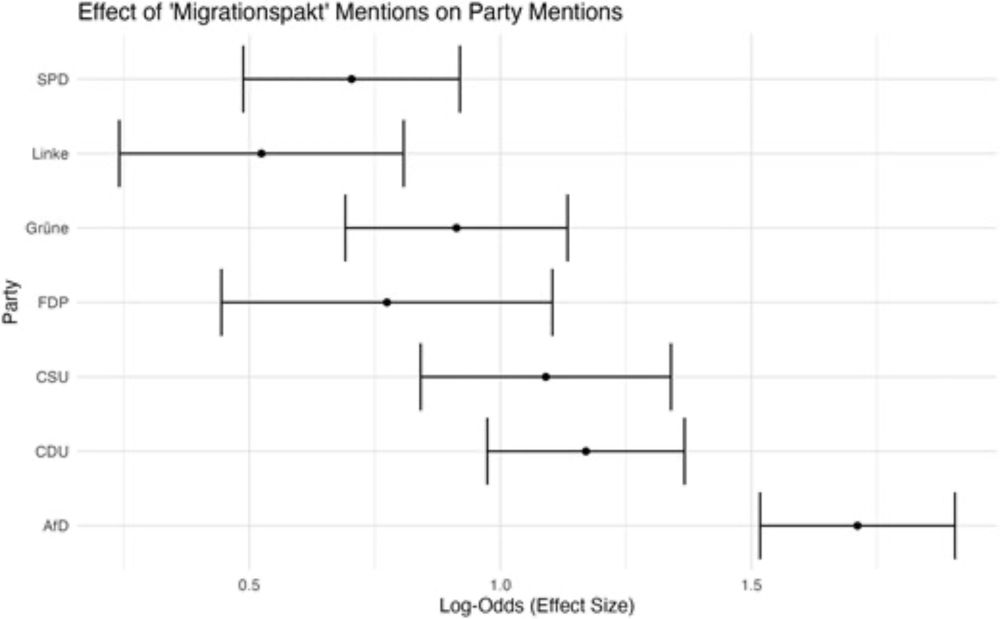
Far-right challenges to liberal democratic press norms: “indexing by proxy” in a German immigration debate
Abstract. This study examines the mechanisms by which illiberal politics make the news by disrupting democratic systems. During the late 20th century, a li
academic.oup.com
October 20, 2025 at 8:28 AM
If you've been reading that fantastic new paper by @dasalgon.bsky.social & @tevoelker.bsky.social on how mainstream parties lose if they adopt far-right issues:
We looked at a case study & found similar dynamics for media.
This was partly based on data from Daniel & Teresa!❤️
bsky.app/profile/curd...
We looked at a case study & found similar dynamics for media.
This was partly based on data from Daniel & Teresa!❤️
bsky.app/profile/curd...
Reposted by Niels G. Mede
New paper out on trust in science in the International Journal of Public Opinion Research.
🙏 to @nielsmede.bsky.social and @colognaviktoria.bsky.social for initiating the TISP project and to @juliametag.bsky.social for her helpful input throughout the project. Free-access link: shorturl.at/4VBAJ
🙏 to @nielsmede.bsky.social and @colognaviktoria.bsky.social for initiating the TISP project and to @juliametag.bsky.social for her helpful input throughout the project. Free-access link: shorturl.at/4VBAJ
October 15, 2025 at 8:42 AM
New paper out on trust in science in the International Journal of Public Opinion Research.
🙏 to @nielsmede.bsky.social and @colognaviktoria.bsky.social for initiating the TISP project and to @juliametag.bsky.social for her helpful input throughout the project. Free-access link: shorturl.at/4VBAJ
🙏 to @nielsmede.bsky.social and @colognaviktoria.bsky.social for initiating the TISP project and to @juliametag.bsky.social for her helpful input throughout the project. Free-access link: shorturl.at/4VBAJ
Reposted by Niels G. Mede
Is research performance related to academic freedom? A preprint co-authored with @lutzb.bsky.social conducts a large-scale empirical analysis on the national level to this question. osf.io/2mh8f #academicfreedom #AcademicFreedomIndex Short 🧵

September 5, 2025 at 8:55 AM
Is research performance related to academic freedom? A preprint co-authored with @lutzb.bsky.social conducts a large-scale empirical analysis on the national level to this question. osf.io/2mh8f #academicfreedom #AcademicFreedomIndex Short 🧵
Reposted by Niels G. Mede
Finally! 🤩 Our position piece: Against the Uncritical Adoption of 'AI' Technologies in Academia:
doi.org/10.5281/zeno...
We unpick the tech industry’s marketing, hype, & harm; and we argue for safeguarding higher education, critical
thinking, expertise, academic freedom, & scientific integrity.
1/n
doi.org/10.5281/zeno...
We unpick the tech industry’s marketing, hype, & harm; and we argue for safeguarding higher education, critical
thinking, expertise, academic freedom, & scientific integrity.
1/n




September 6, 2025 at 8:13 AM
Finally! 🤩 Our position piece: Against the Uncritical Adoption of 'AI' Technologies in Academia:
doi.org/10.5281/zeno...
We unpick the tech industry’s marketing, hype, & harm; and we argue for safeguarding higher education, critical
thinking, expertise, academic freedom, & scientific integrity.
1/n
doi.org/10.5281/zeno...
We unpick the tech industry’s marketing, hype, & harm; and we argue for safeguarding higher education, critical
thinking, expertise, academic freedom, & scientific integrity.
1/n
Reposted by Niels G. Mede
In this new Commentary in @natclimate.nature.com, I reflect on the recent focus on truth discernment in #misinfo research and argue that this outcome alone may not be beneficial to society if interventions do not improve behaviour and other outcomes because... 1/
www.nature.com/articles/s41...
www.nature.com/articles/s41...

Truth discernment may not help to overcome misinformation
Nature Climate Change - Scientists increasingly assess interventions against misinformation mainly via truth discernment. However, pursuing truth discernment may not be sufficiently beneficial to...
www.nature.com
September 8, 2025 at 10:11 AM
In this new Commentary in @natclimate.nature.com, I reflect on the recent focus on truth discernment in #misinfo research and argue that this outcome alone may not be beneficial to society if interventions do not improve behaviour and other outcomes because... 1/
www.nature.com/articles/s41...
www.nature.com/articles/s41...
Reposted by Niels G. Mede
“De wetenschap heeft een tweeledige rol: als locomotief van de vooruitgang, maar ook als rem om de trein van de geschiedenis op de rails te houden.”
Robbert Dijkgraaf in @nrc.nl
Trump en de tech-trawanten www.nrc.nl/nieuws/2025/... www.nrc.nl/nieuws/2025/...
Robbert Dijkgraaf in @nrc.nl
Trump en de tech-trawanten www.nrc.nl/nieuws/2025/... www.nrc.nl/nieuws/2025/...

Column | Trump en de tech-trawanten
Column: Vijandigheid tegenover de wetenschap staat in een lange traditie in de Amerikaanse Republikeinse partij. Robbert Dijkgraaf ziet een verrassende ontwikkeling.
www.nrc.nl
September 6, 2025 at 11:48 AM
“De wetenschap heeft een tweeledige rol: als locomotief van de vooruitgang, maar ook als rem om de trein van de geschiedenis op de rails te houden.”
Robbert Dijkgraaf in @nrc.nl
Trump en de tech-trawanten www.nrc.nl/nieuws/2025/... www.nrc.nl/nieuws/2025/...
Robbert Dijkgraaf in @nrc.nl
Trump en de tech-trawanten www.nrc.nl/nieuws/2025/... www.nrc.nl/nieuws/2025/...
Reposted by Niels G. Mede
How much do people really reject science?
New paper out doi.org/10.1177/0963...
In four studies, we asked Americans—including flat Earthers, climate change deniers and vaccine skeptics—whether they accepted basic scientific facts.
The result? A surprisingly high level of agreement. 👇
New paper out doi.org/10.1177/0963...
In four studies, we asked Americans—including flat Earthers, climate change deniers and vaccine skeptics—whether they accepted basic scientific facts.
The result? A surprisingly high level of agreement. 👇

Quasi-universal acceptance of basic science in the United States - Jan Pfänder, Lou Kerzreho, Hugo Mercier, 2025
Substantial minorities of the population report a low degree of trust in science, or endorse conspiracy theories that violate basic scientific knowledge. This m...
doi.org
September 5, 2025 at 11:17 AM
How much do people really reject science?
New paper out doi.org/10.1177/0963...
In four studies, we asked Americans—including flat Earthers, climate change deniers and vaccine skeptics—whether they accepted basic scientific facts.
The result? A surprisingly high level of agreement. 👇
New paper out doi.org/10.1177/0963...
In four studies, we asked Americans—including flat Earthers, climate change deniers and vaccine skeptics—whether they accepted basic scientific facts.
The result? A surprisingly high level of agreement. 👇
Reposted by Niels G. Mede
🚀 We’re live!
The Political Communication Division of @nefca.bsky.social is now on BlueSky. Follow us for updates on research, events, and conversations in the PolCom community.
The Political Communication Division of @nefca.bsky.social is now on BlueSky. Follow us for updates on research, events, and conversations in the PolCom community.
September 5, 2025 at 8:37 AM
🚀 We’re live!
The Political Communication Division of @nefca.bsky.social is now on BlueSky. Follow us for updates on research, events, and conversations in the PolCom community.
The Political Communication Division of @nefca.bsky.social is now on BlueSky. Follow us for updates on research, events, and conversations in the PolCom community.
Reposted by Niels G. Mede
@nielsmede.bsky.social is opening our workshop based on his TrygFonden * @ddc-sdu.bsky.social fellowship on countering science related online harrassment - very excited to discuss how to support science communicators with a stellar line-up of academics and stakeholders!
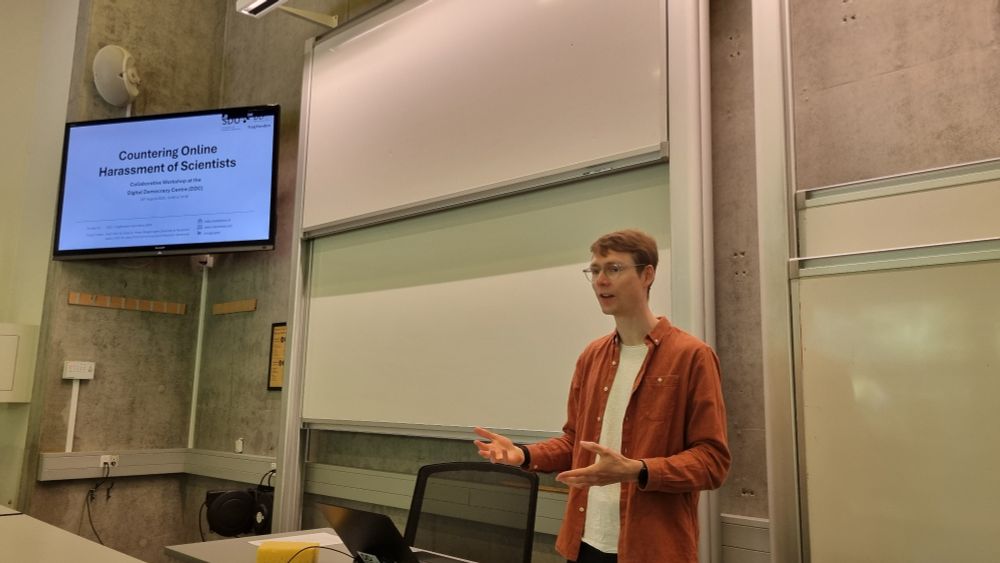
August 20, 2025 at 8:12 AM
@nielsmede.bsky.social is opening our workshop based on his TrygFonden * @ddc-sdu.bsky.social fellowship on countering science related online harrassment - very excited to discuss how to support science communicators with a stellar line-up of academics and stakeholders!
Reposted by Niels G. Mede
thrilled that our guides for #OpenScience in developing countries is now published in AMPPS of @psychscience.bsky.social: journals.sagepub.com/doi/10.1177/...
Please see the thread for details
Please see the thread for details
August 19, 2025 at 12:06 PM
thrilled that our guides for #OpenScience in developing countries is now published in AMPPS of @psychscience.bsky.social: journals.sagepub.com/doi/10.1177/...
Please see the thread for details
Please see the thread for details
Reposted by Niels G. Mede
🧵 Can you predict whether behavioral interventions will work in new contexts?
… probably not, right?
In our new paper with @dggoldst.bsky.social @dilipsoman.bsky.social @susanmichie.bsky.social, we dive into how to better understand and improve generalizability. rdcu.be/ewD2z
Summary👇
… probably not, right?
In our new paper with @dggoldst.bsky.social @dilipsoman.bsky.social @susanmichie.bsky.social, we dive into how to better understand and improve generalizability. rdcu.be/ewD2z
Summary👇
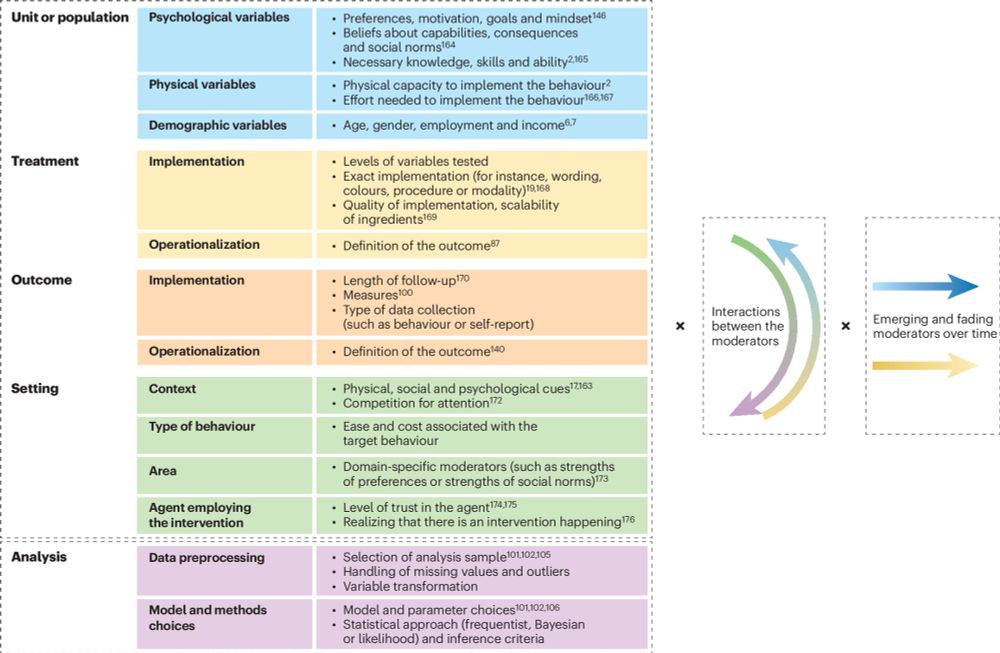
Generalizability of choice architecture interventions
Nature Reviews Psychology - Choice architecture interventions (or ‘nudges’) aim to guide behaviour by changing the proximal physical, social or psychological environment. In this...
rdcu.be
July 28, 2025 at 10:53 AM
🧵 Can you predict whether behavioral interventions will work in new contexts?
… probably not, right?
In our new paper with @dggoldst.bsky.social @dilipsoman.bsky.social @susanmichie.bsky.social, we dive into how to better understand and improve generalizability. rdcu.be/ewD2z
Summary👇
… probably not, right?
In our new paper with @dggoldst.bsky.social @dilipsoman.bsky.social @susanmichie.bsky.social, we dive into how to better understand and improve generalizability. rdcu.be/ewD2z
Summary👇
Reposted by Niels G. Mede
It’s not just social media algorithms that determine whether content goes viral.
Research by @steverathje.bsky.social and @jayvanbavel.bsky.social finds how the psychology of spreaders and consumers interacts with the environment also significantly influences virality:
buff.ly/q17VnXN
Research by @steverathje.bsky.social and @jayvanbavel.bsky.social finds how the psychology of spreaders and consumers interacts with the environment also significantly influences virality:
buff.ly/q17VnXN
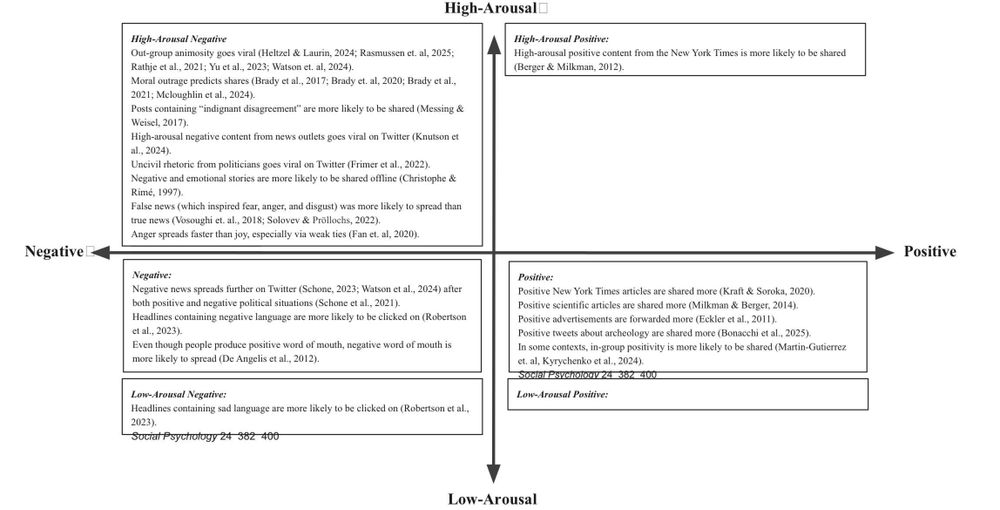
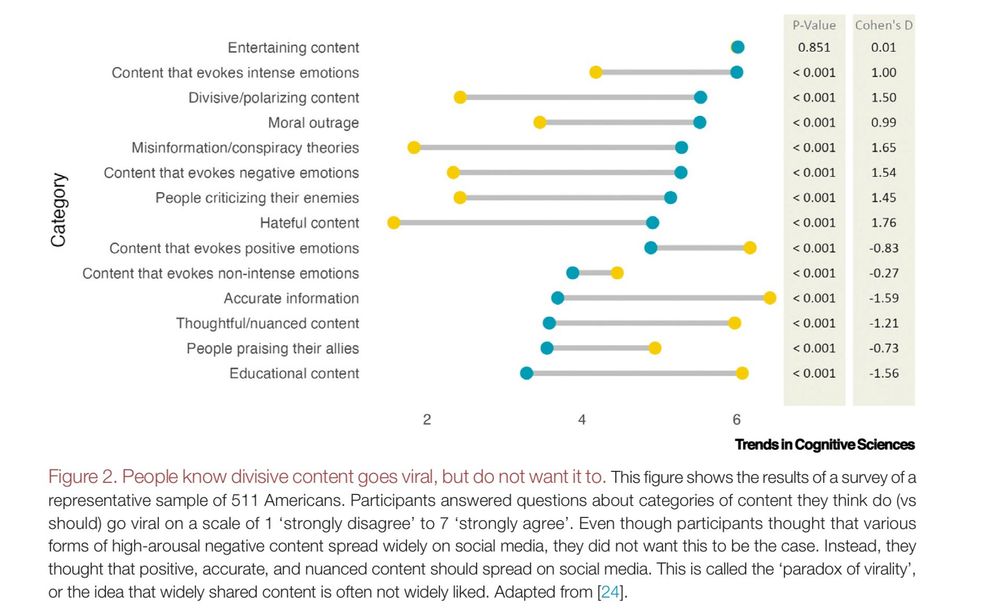
July 18, 2025 at 3:19 PM
It’s not just social media algorithms that determine whether content goes viral.
Research by @steverathje.bsky.social and @jayvanbavel.bsky.social finds how the psychology of spreaders and consumers interacts with the environment also significantly influences virality:
buff.ly/q17VnXN
Research by @steverathje.bsky.social and @jayvanbavel.bsky.social finds how the psychology of spreaders and consumers interacts with the environment also significantly influences virality:
buff.ly/q17VnXN
Reposted by Niels G. Mede
Which is why the way reporting is done is crucial... "We find: It’s not necessarily firsthand experience of extreme weather events. Instead, it’s whether people think that these events are linked to climate change."
New paper: What increases people’s support for policy responses to #climate #change? ✊
We find: It’s not necessarily firsthand experience of extreme weather events. Instead, it’s whether people think that these events are linked to climate change. Here is the paper: www.nature.com/articles/s41... 🔎
We find: It’s not necessarily firsthand experience of extreme weather events. Instead, it’s whether people think that these events are linked to climate change. Here is the paper: www.nature.com/articles/s41... 🔎
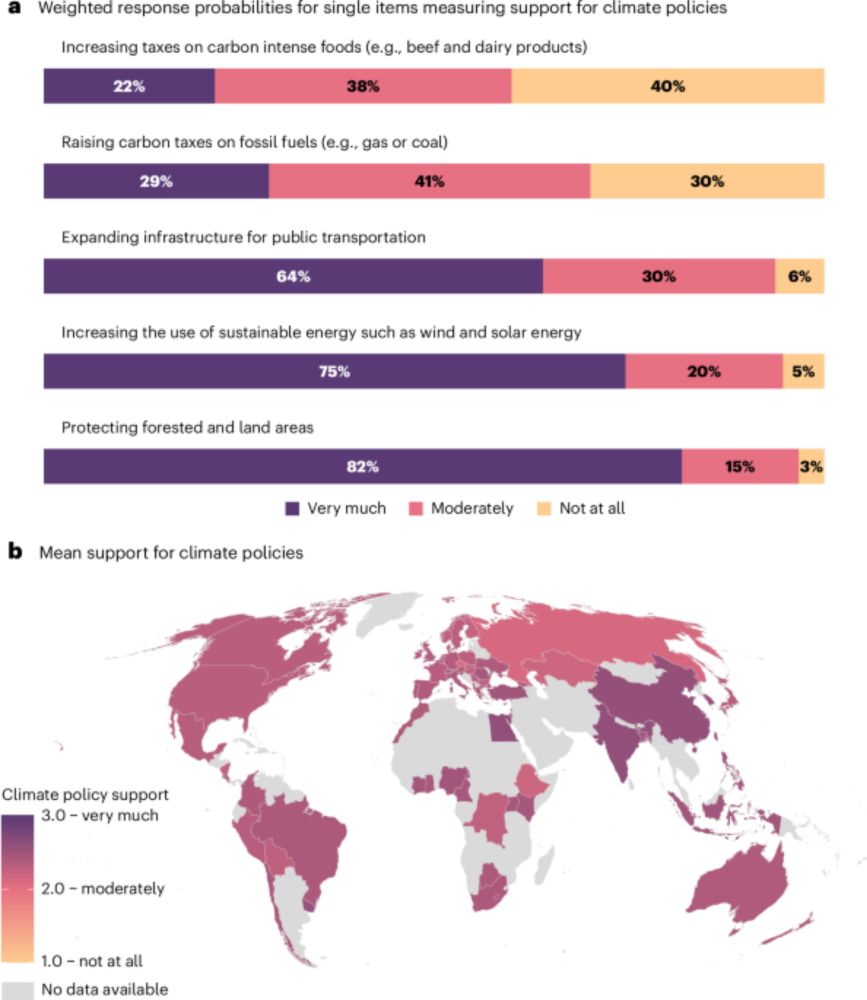
Extreme weather event attribution predicts climate policy support across the world - Nature Climate Change
Literature produced inconsistent findings regarding the links between extreme weather events and climate policy support across regions, populations and events. This global study offers a holistic asse...
www.nature.com
July 10, 2025 at 11:21 AM
Which is why the way reporting is done is crucial... "We find: It’s not necessarily firsthand experience of extreme weather events. Instead, it’s whether people think that these events are linked to climate change."
Reposted by Niels G. Mede
What if science communication wasn’t just about facts—but about trust, humility & shared values? This new agenda from PNAS calls for participatory models to replace top-down fixes. In this ultra-polarized environment, it’s about co-creation, not just correction. What are your thoughts? 🧪🧬🔬

An agenda for science communication research and practice | PNAS
Science should not unilaterally dictate individuals’ decisions or public policies.
Yet, it provides a vital source of information for societies and...
www.pnas.org
July 2, 2025 at 2:02 PM
What if science communication wasn’t just about facts—but about trust, humility & shared values? This new agenda from PNAS calls for participatory models to replace top-down fixes. In this ultra-polarized environment, it’s about co-creation, not just correction. What are your thoughts? 🧪🧬🔬
Excellent new study in @actapolitica.bsky.social: @roderikrekker.bsky.social uses 15 years of representative panel survey data (2007-2022, n = 19,084) to show how science skepticism is linked to political discontent in the Netherlands ⬇️
(1/5) Out now in Acta Politica: Populist parties increasingly target scientists and scientific knowledge. By analyzing 15 annual waves of representative panel data from the Netherlands (2007–2022), I examine to what extent populist parties fuel science skepticism among their supporters.
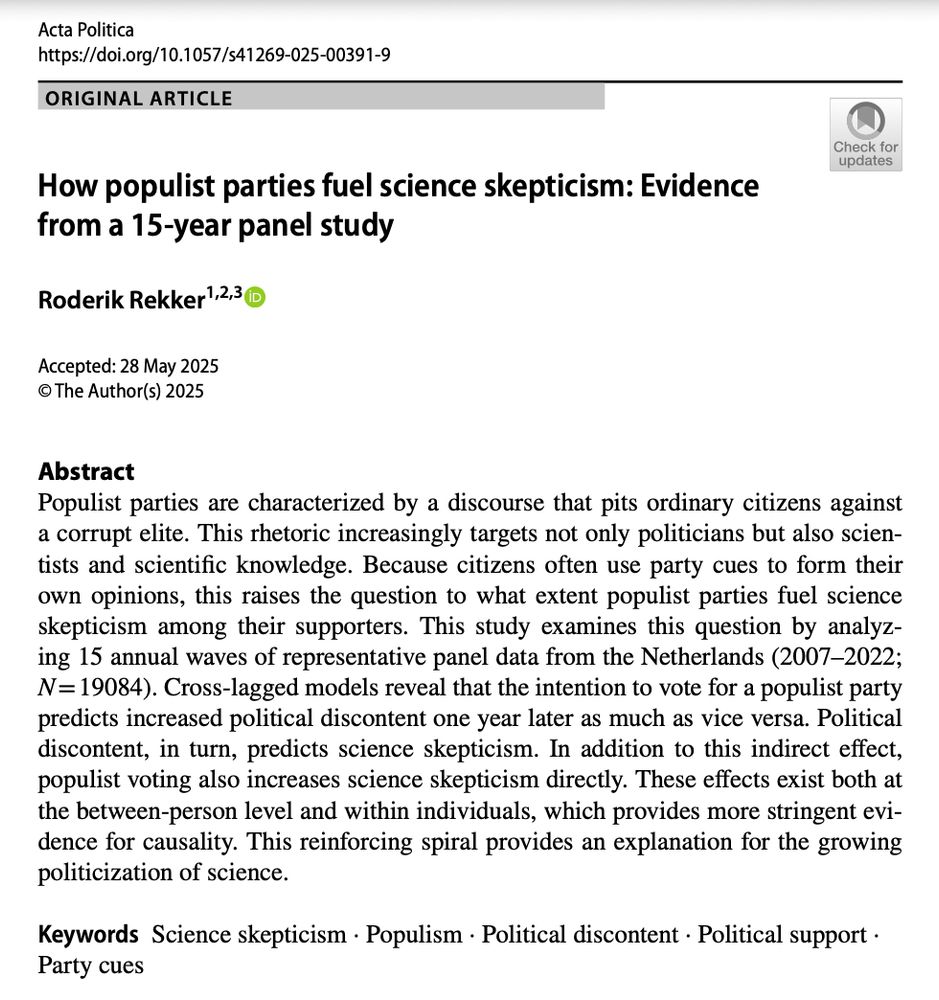
July 6, 2025 at 10:37 AM
Excellent new study in @actapolitica.bsky.social: @roderikrekker.bsky.social uses 15 years of representative panel survey data (2007-2022, n = 19,084) to show how science skepticism is linked to political discontent in the Netherlands ⬇️
New paper: What increases people’s support for policy responses to #climate #change? ✊
We find: It’s not necessarily firsthand experience of extreme weather events. Instead, it’s whether people think that these events are linked to climate change. Here is the paper: www.nature.com/articles/s41... 🔎
We find: It’s not necessarily firsthand experience of extreme weather events. Instead, it’s whether people think that these events are linked to climate change. Here is the paper: www.nature.com/articles/s41... 🔎

Extreme weather event attribution predicts climate policy support across the world - Nature Climate Change
Literature produced inconsistent findings regarding the links between extreme weather events and climate policy support across regions, populations and events. This global study offers a holistic asse...
www.nature.com
July 4, 2025 at 9:04 AM
New paper: What increases people’s support for policy responses to #climate #change? ✊
We find: It’s not necessarily firsthand experience of extreme weather events. Instead, it’s whether people think that these events are linked to climate change. Here is the paper: www.nature.com/articles/s41... 🔎
We find: It’s not necessarily firsthand experience of extreme weather events. Instead, it’s whether people think that these events are linked to climate change. Here is the paper: www.nature.com/articles/s41... 🔎
Reposted by Niels G. Mede
🚨 How do exposure to extreme weather events and the subjective attribution of these events to climate change relate to climate policy support across the world? 🔥🌎
Find out more in our OA article published in Nature Climate Change 👇 1/7 🧵 www.nature.com/articles/s41...
Find out more in our OA article published in Nature Climate Change 👇 1/7 🧵 www.nature.com/articles/s41...
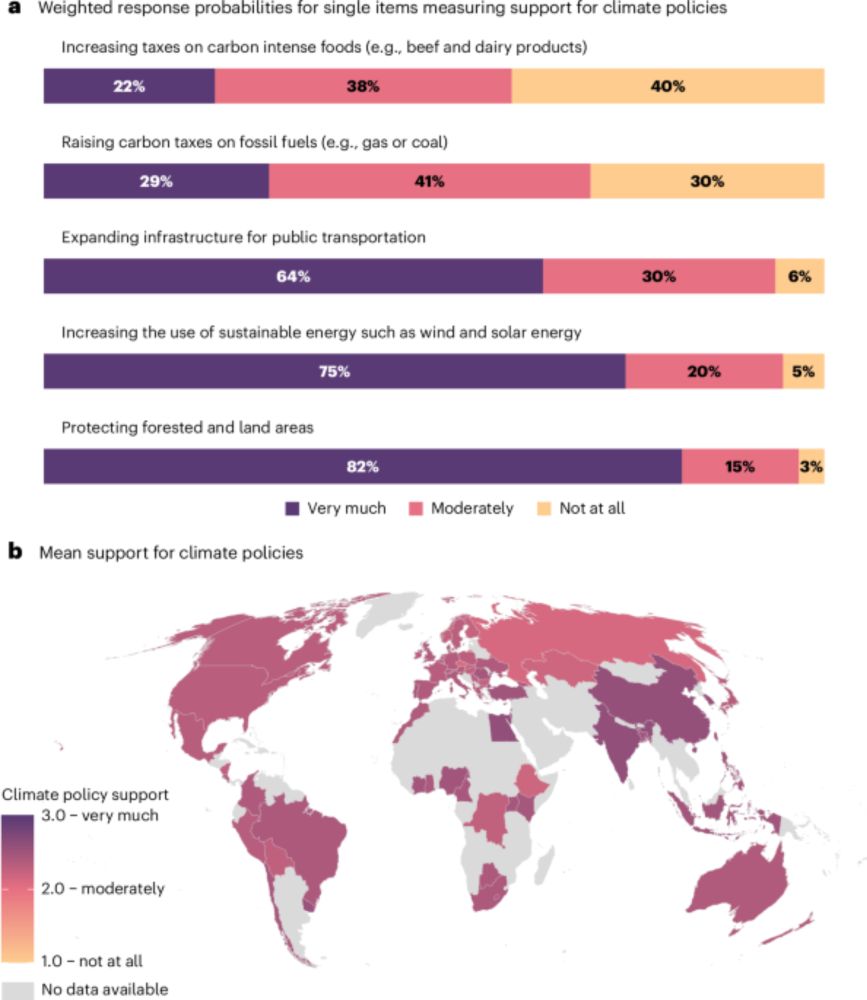
Extreme weather event attribution predicts climate policy support across the world - Nature Climate Change
Literature produced inconsistent findings regarding the links between extreme weather events and climate policy support across regions, populations and events. This global study offers a holistic asse...
www.nature.com
July 1, 2025 at 10:38 AM
🚨 How do exposure to extreme weather events and the subjective attribution of these events to climate change relate to climate policy support across the world? 🔥🌎
Find out more in our OA article published in Nature Climate Change 👇 1/7 🧵 www.nature.com/articles/s41...
Find out more in our OA article published in Nature Climate Change 👇 1/7 🧵 www.nature.com/articles/s41...
Ade Zürich, hallo #Wageningen! This week I started my new position as Assistant Professor at @w-u-r.bsky.social ✨
Thanks a lot for the warm welcome – I'm very excited about what’s ahead! At the same time, I'm very grateful for the years I spent at @ikmz.bsky.social. Merci vielmal und uf widerluege 🫶
Thanks a lot for the warm welcome – I'm very excited about what’s ahead! At the same time, I'm very grateful for the years I spent at @ikmz.bsky.social. Merci vielmal und uf widerluege 🫶


July 2, 2025 at 11:59 AM
Ade Zürich, hallo #Wageningen! This week I started my new position as Assistant Professor at @w-u-r.bsky.social ✨
Thanks a lot for the warm welcome – I'm very excited about what’s ahead! At the same time, I'm very grateful for the years I spent at @ikmz.bsky.social. Merci vielmal und uf widerluege 🫶
Thanks a lot for the warm welcome – I'm very excited about what’s ahead! At the same time, I'm very grateful for the years I spent at @ikmz.bsky.social. Merci vielmal und uf widerluege 🫶

